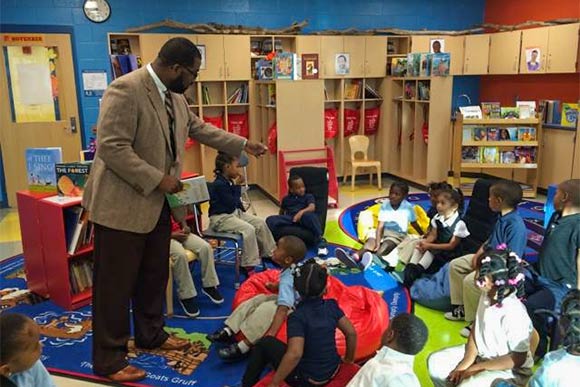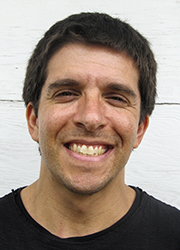"Promise" initiative aims for transformative impact on youth, residents
 Reading initiative that's part of the ambassador program
Reading initiative that's part of the ambassador program
Residents of Cleveland's Central neighborhood are leading the charge in sustaining their youth population's academic success through creation of a community-wide support network.
The Cleveland Central Promise Neighborhood works to transform educational outcomes by training adults to be leaders, or "promise ambassadors." After a ten-week course conducted by the Neighborhood Leadership Institute (NLI), citizens
act as boots on the ground, interacting directly with students as well as their parents.
Nine new ambassadors graduated from the program on Nov. 9, adding to the 55 residents already on the streets, says Peter Whitt, a trainer with NLI. That's nine new faces impacting Central by getting kids school-ready and supporting them so they stay engaged. Ambassadors are also encouraged to join school boards and other regional decision-making entities while connecting additional community members to the cause.
"Creating a culture of education is the primary goal," says Whitt, an NLI graduate himself. "The undercurrent here is empowerment and providing resources for ambassadors to have a platform in organizations."
Outreach efforts include Fathers Read, an initiative in which male ambassadors read at daycare centers and preschools, making men more visible to community youth. Graduating participants also educate families on kindergarten registration, address absenteeism issues for older students, and work to convert vacant lots into gardens to foster a sense of healthy community.
"The educational system across the nation hasn't done the best in providing resources to the urban core," says Whitt. "This program is needed to develop innovation around education and help students succeed right in their neighborhoods."
Central, located between East 22nd and East 55th and bordered by Euclid and Woodland Avenues, has 90 percent of its population living below the poverty level, according to city data statistics. The Cleveland Central Promise Neighborhood was founded in 2010, with partners that including nonprofits, early child care providers, schools, public housing, libraries and businesses to maximize communication.
The project was modeled after the Harlem Children's Zone, which provides education and other services for underserved families from birth to college and career. Whitt says a comprehensive, place-based approach to education can have a powerful impact here as well, with residents at the forefront of the change.
"We recognize this isn't an overnight thing; its has to be sustained and evaluated," he says. "We want this to be a model for programs across the country."

